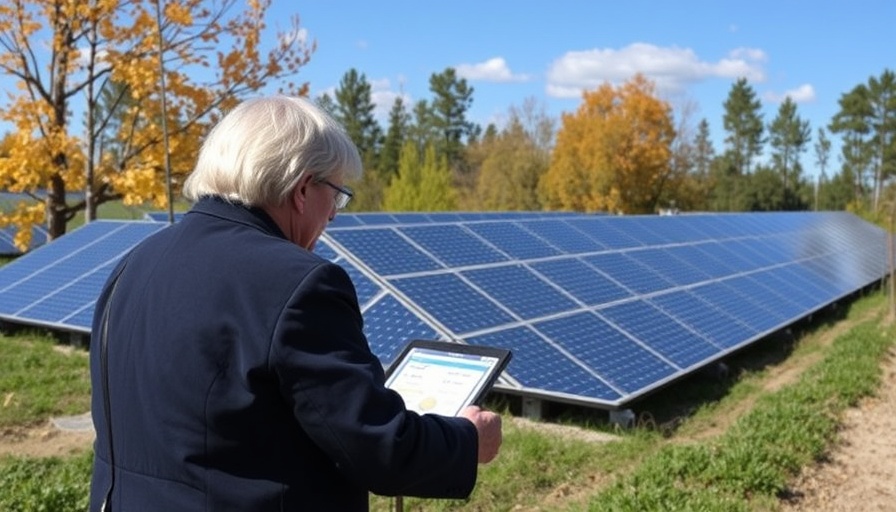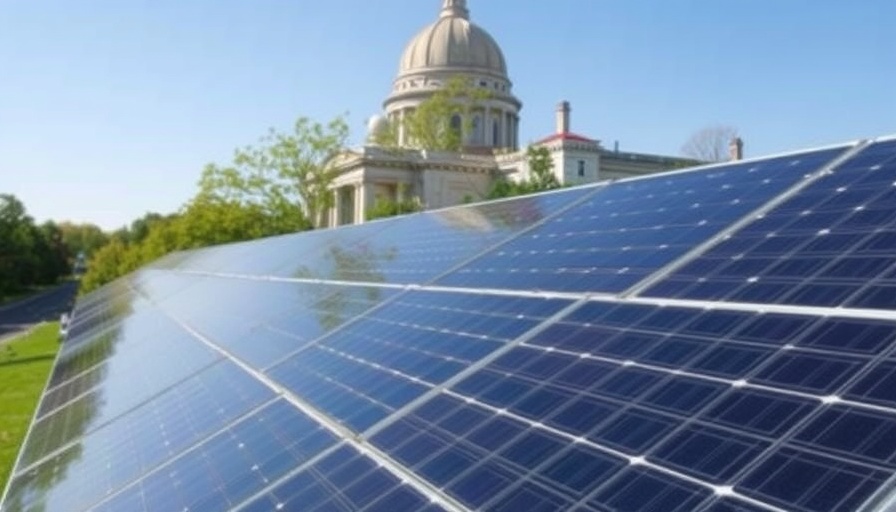
Why Trump's Base is Embracing Solar Energy
In an unexpected turn, solar energy has seen a significant surge in popularity across regions traditionally aligned with former President Trump's policies. Homeowners in this demographic are increasingly recognizing the benefits of solar energy, not only as a way to reduce their energy costs but also as an investment that can enhance property values. This movement is reshaping the narrative around sustainable energy sources, showing that environmental responsibility can appeal to a diverse range of political beliefs.
The Economic Benefits of Solar Adoption
For many homeowners, the financial incentives tied to adopting solar technology are compelling. Numerous state programs offer rebates, tax credits, and even rebates for installation, significantly lowering the initial investment. In states like Texas, which boasts abundant sunshine, residents see immediate savings on their utility bills—a factor that's not lost on those looking to save money irrespective of political affiliation.
Social Responsibility Meets Economic Pragmatics
Studies reveal that beyond the financial implications, the switch to solar is often viewed as a way to contribute positively to one’s community and environment. Eco-conscious consumers in Trump-dominant areas are motivated by a sense of responsibility toward sustainable practices while still enjoying economic benefits. This intersection of environmental stewardship and fiscal prudence is fostering an alliance that could reshape energy conversations in these communities.
The Growth of Renewable Energy Infrastructure
Growth isn't just happening at the homeowner level; companies specializing in solar technology are also expanding. As more demand emerges from Trump's base, businesses are ramping up production and service offerings, leading to job creation in the increasingly competitive solar market. This boom is indicative of a changing economic landscape that values renewable energy solutions—with solar technology becoming a viable option for the working-class citizen.
Challenges Facing Solar Implementation
Despite the positive trends, challenges remain. Homeowners may face skepticism due to misinformation about solar technology and installation processes. This skepticism can hinder potential adopters, leading to misconceptions about cost, efficiency, and practicality. It is essential for the industry to engage with these communities honestly and transparently to combat fears and misinformation surrounding solar energy.
Looking Forward: The Future of Solar in Unexpected Places
As solar technology continues to evolve, so too will its acceptance in traditionally conservative areas. Newer models mean increased efficiency, better storage solutions, and lower costs. With ongoing research and advancements, solar energy could very well become a standard in households across the country, diversifying its consumer base. Moving forward, community engagement and education will play vital roles in ensuring this growth remains sustainable and inclusive.
In the coming years, continued dialogue between the solar industry and local communities, focused on factual information and benefits, will be essential. As more homeowners recognize the surprising advantages of switching to solar, we could witness a larger acceptance of renewable energy across previously resistant regions. Solar energy is not just a trend; it signifies a significant shift in how households approach home energy management.
 Add Row
Add Row  Add
Add 



 Add Row
Add Row  Add
Add 
Write A Comment